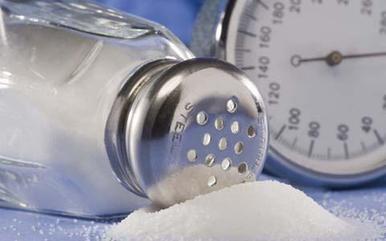
A new study casts doubt on the merits of reducing salt in our diet. The researchers found that a modest lowering of blood pressure may be offset by other less desirable effects of a low-sodium diet.
For years it's been part of accepted medical wisdom: reducing salt in your diet will lower your blood pressure, which will lower your risk of heart attack and stroke.
But according to Danish researcher Niels Graudal of Copenhagen University Hospital, the effect of a reduced-salt diet is less dramatic than you might think.
"We found that in normal persons with normal blood pressure, the effects on the blood pressure were surprisingly small. In patients with hypertension, the effect was somewhat bigger: the decrease was about 3.5 percent," he says.
Graudal mathematically combined the results of 167 previous studies to come up with his results. The people in the studies were largely European and North American, although Asians and blacks on low-sodium diets showed a somewhat larger reduction in their blood pressure.
Even a modest reduction for people with high blood pressure is probably a good thing, but the study also found that people on a low-sodium diet had higher levels of cholesterol, which is associated with an increased risk of heart disease.
Graudal says the body's natural salt-regulation system was also affected by a low-sodium diet. "And we saw that when you reduce the sodium intake, the hormone system was activated, which means that the body obviously felt that there was a danger that the amount of salt in the body could become too low."
It might be more helpful to look directly for a link between salt consumption and heart disease or death, but Graudal says very few studies have tried to do that.
"It would be very difficult to make a randomized, a big randomized study and keep people on special diets for many years," he explains. "Practically that would be very, very difficult."
Graudal cautions that his study should not be interpreted as a license to eat as much salt as you want. He says it just confirms that a moderate amount of salt in a normal diet is probably not harmful, and reducing salt intake has both positive and negative effects that might not help reduce the risk of heart attack and stroke.
His paper reviewing previous studies on the impact of low-sodium diets is published in the American Journal of Hypertension.
sodium: 鈉
hypertension: 高血壓
cholesterol: 膽固醇
Knowing women's risk of heart disease
Veggies help fight genetic heart attack risk
(來源:VOA 編輯:Rosy)
